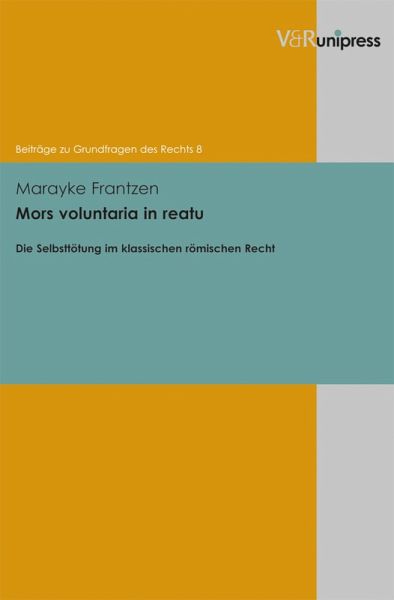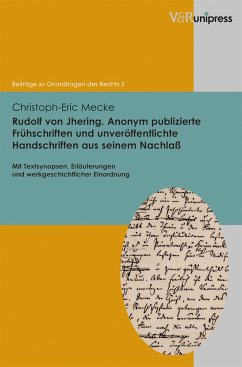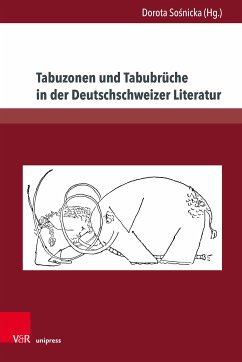
Mors voluntaria in reatu (eBook, PDF)
Die Selbsttötung im klassischen römischen Recht

PAYBACK Punkte
0 °P sammeln!
Suicide in Roman law has caused special legal consequences in several connections, dependent among other things on the different chronological steps of development. The book illustrates these steps and works out the course of development and the influencing factors to create an overall picture of legal treatment of suicide in Roman law. Main attention is given to the suicide of alleged delinquents before conviction. Nevertheless it appears that Roman law fulfilled just its original function in context with the morally explosive topic suicide: balancing interests. Surprisingly one does not find...
Suicide in Roman law has caused special legal consequences in several connections, dependent among other things on the different chronological steps of development. The book illustrates these steps and works out the course of development and the influencing factors to create an overall picture of legal treatment of suicide in Roman law. Main attention is given to the suicide of alleged delinquents before conviction. Nevertheless it appears that Roman law fulfilled just its original function in context with the morally explosive topic suicide: balancing interests. Surprisingly one does not find any moral attitude towards suicide within the discussion of the Roman jurists.
Dieser Download kann aus rechtlichen Gründen nur mit Rechnungsadresse in A, B, BG, CY, CZ, D, DK, EW, E, FIN, F, GR, H, IRL, I, LT, L, LR, M, NL, PL, P, R, S, SLO, SK ausgeliefert werden.













